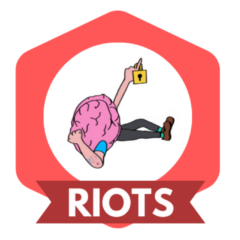
- This event has passed.
Fast-tracked COVID-19 research: our experience by Prof Mitul Mehta & Dr Ndaba Mazibuko
21 May 2020 @ 12:00 pm - 1:00 pm UTC+0
About the speakers
Professor Mitul Mehta
Professor Mitul Mehta graduated from Cambridge University in Natural Sciences, where he also completed his PhD. An MRC Fellowship to train in positron emission tomography at Imperial College was followed by a Wellcome Trust Award to continue his research using magnetic resonance imaging at King’s. His investigations on the dopamine system and human cognitive function earned him the British Association for Psychopharmacology (BAP) young investigator award in 2005. He has subsequently applied his research to assess novel drugs to improve brain function, and studies the role of acquisition and analysis methods in pharmacological imaging. His group have developed pipelines suitable for assaying novel compounds and he has worked with numerous companies in this work. He is currently Head of the Neuropharmacology group in the Department of Neuroimaging, Institute of Psychiatry, Psychology & Neuroscience, Director of the newly formed Centre for Innovative Brain Therapeutics, Deputy lead for Neuroimaging in the NIHR-BRC for Mental Health and Meetings Secretary for the BAP.
Dr Ndaba Mazibuko
Dr Ndaba Mazibuko is a Clinical Research Fellow in Clinical Neuroscience (Institute of Psychiatry, Psychology and Neuroscience – King’s College London). His work includes clinical trial design and management with respect to pharmacological and neuroimaging studies including a role as a Medical Principal Investigator on a recent academic / industry clinical trial collaboration. He provides clinical oversight for the broad portfolio of the Department of Neuroimaging studies. His work has honed in on drug repurposing translation. He has recently joined the Centre for Innovative Therapeutics (C-FIT) as Repurposing Lead. Prior to clinical academia, he worked as a Neurology and Acute Stroke Registrar at King’s College Hospital and has several years’ experience as a clinician in varied disciplines within the NHS in addition to clinical experience in Australia (where he trained) and also in Africa.
About the talk
During the current pandemic there has been an opportunity to develop research studies rapidly. This is necessarily opportunistic and for studies in patients the government has set up systems of prioritisation. Our experience of setting up two studies highlights some positives in terms of collegiate behaviour and collaboration potential. We also have acute experiences of the negative effects of fast-tracking in the UK. The desire for rapid answers, at least for treatments, has, we believe, created a paradoxical scenario whereby studies that can report rapidly are being delayed or even being denied access to patients. We will also talk about the events that have led to card-carrying brain researchers to spend so much time thinking about respiratory disease.
